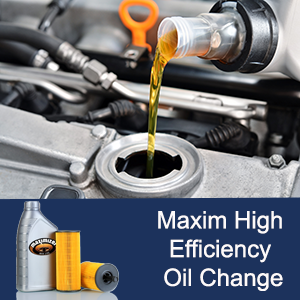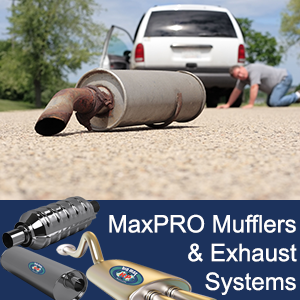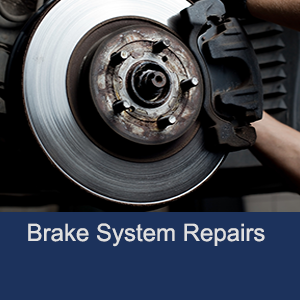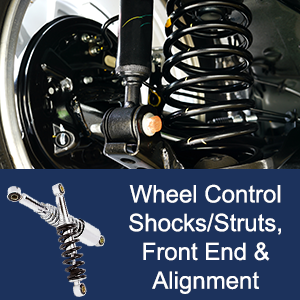1. What is a muffler?
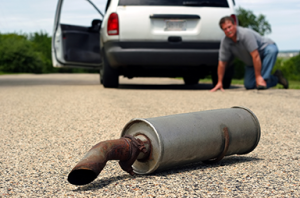 A muffler is the exhaust system of an engine, designed to reduce emissions and noise.
A muffler is the exhaust system of an engine, designed to reduce emissions and noise.
A muffler helps to reduce the tremendous amount of noise that an engine produces. Although internal combustion accounts for some of this noise, most of it comes from pressure waves generated by the rapid opening and closing of the engine’s valves. The muffler’s backbox is internally designed to receive the pressure waves and bounce them around inside carefully designed chambers and cylinders. The shape and length of these baffles creates pressure waves of a roughly equal nature moving in opposite directions. When they collide with one another, the waves of equal but opposite amplitude cancel each other out. One drawback of this design is that it can cause backpressure, which impacts performance.
A second type of muffler, known as a high performance muffler, consists of a straight steel pipe with perforations, which allows some sound canceling while creating very little backpressure.
Because a muffler is located on the undercarriage, it is often neglected. A muffler can rust out over time, rot and even fall off the vehicle. It’s a good idea to take a peek at your muffler from time to time to make sure it looks sound and is securely clamped. If a muffler becomes rotted, it’s time to replace it!
2. What is a catalytic converter?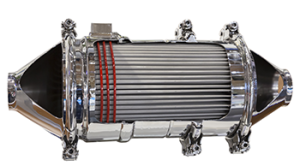
A catalytic converter is a device installed in automobiles that is designed to reduce harmful emissions released from the vehicleís exhaust. In the United States, all vehicles produced after 1975 are required to have a catalytic converter. This is part of an attempt to reduce air pollution.
Without a catalytic converter, the emissions from automobiles consist of noxious gases such as carbon monoxide, hydrocarbons and nitrogen oxide. These gases emitted from automobiles are the largest source of ground level ozone. Ground level ozone is responsible for smog, myriad respiratory problems and damage to plant life. A catalytic converter uses metallic catalysts, usually platinum, rhodium or palladium, that cause a chemical reaction with the noxious gases, converting them into less harmful gases.
3. How does suspension affect my cars performance? Why do I care about shocks and struts?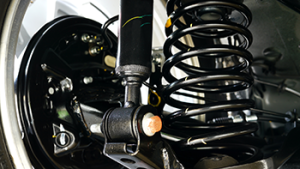
When people think of automobile performance, they normally think of horsepower, torque and zero-to-60 acceleration. But all of the power generated by a piston engine is useless if the driver can’t control the car. That’s why automobile engineers turned their attention to the suspension system almost as soon as they had mastered the four-stroke internal combustion engine.
The job of a car suspension is to maximize the friction between the tires and the road surface, to provide steering stability with good handling and to ensure the comfort of the passengers.
If a road were perfectly flat, with no irregularities, suspensions wouldn’t be necessary. But roads are far from flat. Even freshly paved highways have subtle imperfections that can interact with the wheels≠ of a car. It’s these imperfections that apply forces to the wheels. According to Newton’s laws of motion, all forces have both magnitude and direction. A bump in the road causes the wheel to move up and down perpendicular to the road surface. The magnitude, of course, depends on whether the wheel is striking a giant bump or a tiny speck. Either way, the car wheel experiences a vertical acceleration as it passes over an imperfection.
suspension
Without an intervening structure, all of wheel’s vertical energy is transferred to the frame, which moves in the same direction. In such a situation, the wheels can lose contact with the road completely. Then, under the downward force of gravity, the wheels can slam back into the road surface. What you need is a system that will absorb the energy of the vertically accelerated wheel, allowing the frame and body to ride undisturbed while the wheels follow bumps in the road.
The study of the forces at work on a moving car is called vehicle dynamics, and you need to understand some of these concepts in order to appreciate why a suspension is necessary in the first place. Most automobile engineers consider the dynamics of a moving car from two perspectives:
* Ride – a car’s ability to smooth out a bumpy road
* Handling – a car’s ability to safely accelerate, brake and corner
Automotive shock absorbers and struts do more than just provide a comfortable ride. Their most important function is to influence the control and handling characteristics of your vehicle. Without them, a vehicle would continually bounce and bound down the road, making driving extremely difficult. Shocks and struts are designed to help keep your tires on the road. They control the action of the spring to resist bottoming out like when you hit a pothole and keep the movement of the springs under control when they rebound.
4. How do I know when my shocks or struts need replacing?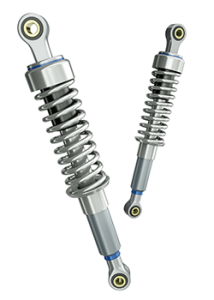
Under normal conditions, shocks & struts wear out gradually. However, many factors can affect how much wear is actually occurring and at what rate it is occurring. For example, 2 people buy the same vehicle new off the dealer lot one lives in the city close to the office, and drives mostly on straight roads. The other lives in the country, 45 miles from the office and must travel 10 of those miles on a winding, often muddy gravel road. Because shocks operate in extremely hostile under – vehicle environment, where anything from gravel to ice, and snow to grit can affect the life of the product, it is a good bet that driver #2 will need to replace his shocks long before driver #1. The piston rod can easily be nicked or damaged by flying gravel allowing grit and dirt to damage the piston seal. When this occurs, fluid begins to leak from the piston seal and eventually the shock will lose its ability to function properly.
Worn shocks and struts not only affect the ride comfort and control of your vehicle, but can affect its braking effectiveness, too. Here is a good self test to check for signs of worn shocks or struts:
* Do you experience excessive bounce (3 or more bounces) when crossing an intersection or dip?
* When stopping quickly, does your vehicle rock back and forth several times?
* While applying your brakes firmly at higher speeds, does your vehicle have a tendency to drift left or right?
* When changing lanes quickly does your vehicle rock or sway from side to side?
* On a tight curve like a highway ramp, does your vehicle lean and sway giving it an uneasy and disconnected feeling?
5. When do I know to change my oil?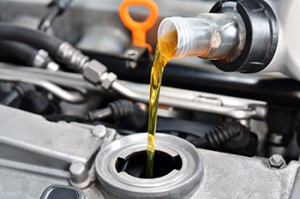
The best bet when considering the frequency rate of the oil change is to consult the manufacturing recommendations in your car’s manual. If you have purchased an older vehicle without a manual, you can either order a manual from the manufacturer, or check online to read recommendations. Many believe that observing the oil change rule extends the life of one’s car.
The general recommendation is changing your oil every 3000 miles (5000 kilometers). Using Maxim Muffler’s special oil change program can actually let you go a little longer between oil changes and dramatically increase your gas mileage – and help Canada stay green!
6. What is included in an inspection?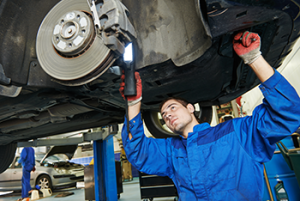
After a conversation with you as to what the problems are you are experiencing and under what circumstances they occur under, we will take the time to go over your vehicle thoroughly to identify the source of problem and we will show you and explain to you what we have found. We take pride in offering you a solution that will meet your needs and your expectations and can work with you to find an affordable and high value solution.
7. How much will this cost me?
We provide a free incoming inspection for everyone who comes to our shop, and are happy to give you an estimate before we start the job!
8. If my car sounds really noisy – is it the muffler? What else could it be?
In many circumstances, noise in the vehical may be related to your exhaust system. It is always possible that this is your worst fear and your entire exhaust system needs replacingm or this may be as simple as a gasket needing replacing, or a loose connection. We will take the time to determine only what needs to be repaired and we are happy to show you what we will do to fix the problem, and answer any questions you have.
9. My car does not seem to have much power – is there anything you can do?
Many car power problems are related to the exhaust system – but not all. We are happy to inspect your vehicle and determine if there is a problem in your exhaust system to see if we can offer you a solution to improve your vehicle performance and efficiency.
10. Can you help me improve my gas mileage?
Of course – in almost every situation we can provide a set of solutions that can help you improve your gas mileage and vehicle efficiency.
11. Do you work on older cars and classic cars?
We love to!
12. Do you work on larger trucks, farm vehicles, industrial equipment or motorhomes?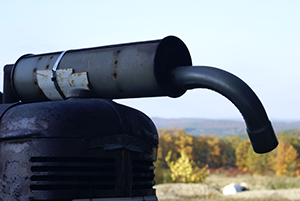
Absolutely! We work on a wide range of large farm vehicles, industrial equipment, motorhomes – in fact anything that can drive down the road and to our shop – and many things that do not! Just give us a call or drop in with your requests – we are happy to talk to you about any exhaust related project!
13. Will you help me do the job myself?
Of course! Come on in – and talk to us about the job you want to do. We absolutely love to provide you with advice to do it yourself, and are more than willing to sell you the parts that you may need to do the job, or to help you install or modify the parts that you are unable to do yourself.

